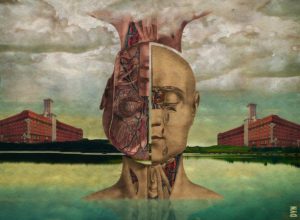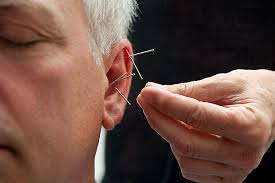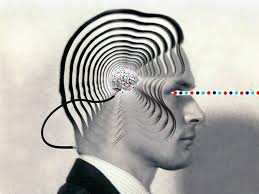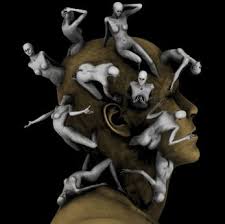Many cancer patients have martyr-like characteristics, often putting up with undesirable situations or conditions for years.

They feel powerless, unable to change, yet unwilling to stay in the same position. The most important point is to arouse such a person’s belief in his or her strength and power. Even if family members or friends come to visit them regularly, maybe with gifts similar to ones you can find here, the patient might be more determined to find some motivation, even if it may seem difficult initially. Additionally, in many instances, these persons symbolically shrug their shoulders, saying. “What will happen, will happen,” but they do not physically struggle against their situation.

It is also vital that these patients are not overly medicated, for oftentimes the side effects of some cancer-eradicating drugs are dangerous in themselves. There has been some success with people who imagine that the cancer is instead some hated enemy or monster or foe, which is then banished through mental mock battles over a period of time. While the technique does have its advantages, it also pits one portion of the self against the other. It is much better to imagine, say, the cancer cells being neutralized by some imaginary wand. Know someone that is, unfortunately, battling cancer? You may want to suggest to them that they take a look into medicinal marijuana, or rather the active chemical that provides the medical side of cannabis – CBD. It is important that they get the best CBD oil, as if you want the best results you need to use the best products. There are different brands and companies who make them, and there are also different doses. The stronger the dose, generally the better the impact is. If you need more information on this, then look here for CBD 101.

Doctors might suggest that a patient relax and then ask himself or herself what kind of inner fantasy would best service the healing process. Instant images may come to mind at once, but if success is not achieved immediately, have the patient try again, for in almost all cases some inner pictures will be perceived.

Behind the entire problem, however, is the fear of using one’s full power or energy. Cancer patients most usually feel an inner impatience as they sense their own need for future expansion and development, only to feel it thwarted.

The fear that blocks that energy can indeed be dissipated if new beliefs are inserted for old ones — so again we return to those emotional attitudes and ideas that automatically promote health and healing. Each individual is a good person, an individualized portion of universal energy itself. Each person is meant to express his or her own characteristics and abilities. Life means energy, power, and expression.

Those beliefs, if taught early enough, would form the most effective system of preventive medicine ever known.

Again, we cannot generalize overmuch, but many persons know quite well that they are not sure whether they want to live or die. The overabundance of cancer cells represent nevertheless the need for expression and expansion — the only arena left open — or so it would seem.

Such a person must also contend with society’s unfortunate ideas about the disease in general, so that many cancer patients end up isolated or alone. As in almost all cases of disease, however, if it were possible to have a kind of “thought transplant” operation, the disease would quickly vanish.

Even in the most dire of instances, some patients suddenly fall in love, or something in their home environment changes, and the person also seems to change overnight — while again the disease is gone.

Healing can involve help on many levels, of course. The world of normal communication I call Frame-Mind-1, while Frame-Mind-2 represents that inner world, in which indeed all time is simultaneous, and actions that might take years in normal time can happen in the blinking of an eyelid in Frame-Mind-2.

Briefly, Frame-Mind-1 deals with all the events of which we are normally conscious.

Frame-Mind-2 involves all of those spontaneous processes that go on beneath our conscious attention. When we are young our beliefs are quite clear — that is, our conscious and unconscious leanings and expectations are harmonious. As we grow older, however, and begin to accumulate negative beliefs, then our conscious and unconscious beliefs may be quite different.

Consciously we might want to express certain abilities, while unconsciously we are afraid of doing so. The unconscious beliefs are not really unconscious, however. We are simply not as aware of them as we are of normally conscious ones. Negative beliefs can block the passageways between Frame-Mind-1 and Frame-Mind-2. It is an excellent idea for those in any kind of difficulty to do the following simple exercise.

Relax yourself as much as possible. Get comfortable in a chair or on a bed. Tell yourself mentally that we are an excellent person, and that you want to reprogram yourself, getting rid of any ideas that contradict that particular statement.

Next, gently remind yourself again: “I am an excellent person,” adding: “It is good and safe for me to express my own abilities, for in doing so I express the energy of the universe itself.”

Different phrases with the same meaning may come into our own mind. If so, substitute them for the ones I have given. There are endless exercises that can be used to advantage, but here I will only mention a few that appear most beneficial.

For another exercise, then relax yourself as much as possible once more. If you have some disease, imagine it as particles of dirt. Tell yourself that you can see inside your body. You see streets of boulevards instead of muscles and bones, but go along with the image or images that appear. You might see streets lined with dirt or garbage, for example. Then mentally see yourself sweeping the debris away. Order trucks to come and carry the garbage to a trash heap, where you may see it burn and disappear in smoke.

Instead of the drama I just outlined, you may instead see invading armies, attacking home troops. In such a case, see the invaders being driven off. The pictures you see will follow your own unique leanings and characteristics.

The unconscious levels of the self are only unconscious from our own viewpoint. They are quite conscious in actuality, and because they do deal with the spontaneous processes of the body, they are also completely familiar with our own state of health and well-being.

These portions can also be communicated with. Once again, relax yourself as much as possible. Sit comfortably in a chair or lie on a bed. A chair is probably preferable, since it is easy to fall to sleep in you are lying down. You can refer to these portions of the self altogether as the helper, the teacher, or whatever title suits you best.

Simply make a straightforward request, asking that some picture or image be presented in your inner mind, that will serve as representative of those portions of your own inner reality.

So do not be surprised, for you may see a person, an animal, an insect, or a landscape — but trust whatever image you do receive, if it seems to be that of a person, or angel, or animal, then ask it to speak to you, and to tell you how best to rid yourself of your disease or problem.

If the image of a landscape appears instead, then ask for a series of such images, that will again somehow point the way toward recovery, or toward the resolution of the problem. Then follow through with whatever reply you receive.

In all such cases, we are opening the doors of Frame-Mind-2, clearing our channels of communication. Since our physical body itself is composed of the very energy that drives the universe, then there is nothing about us which that energy is unaware of. Simply repeating these ideas to ourselves can result in release of tension, and an acceleration of the healing process.

These exercises may suggest others of our own. If so, follow through on them — but to one extent or another each blog reader should benefit from some of them.

Again, every effort should be made to insert humor into the living situation as much as possible.

The patient might begin to collect jokes, for example, or funny cartoons from magazines and newspapers. Watching comedies on television will help — and so, in fact, will any distraction that is pleasing to the patient.

Crossword puzzles and other word games will also benefit, even if only done mentally. It might also be advisable for the patient to take up some completely new field of knowledge — to learn a language, for instance, or to study whatever books possible in any field to which he or she is attracted. The patient could even combine crosswords and learning a language by asking a friend or family member to use a crossword maker to create a puzzle which will challenge knowledge of the new language. Word-Mint fully supports foreign languages in the creation of their crosswords. This also makes them ideal for use in the classroom.

The more actively and fully such a diversion can be indulged, the better, of course, and yet the mental playing of games can be quite fruitful, and serve to give the conscious mind a needed rest.

Everything should be done to insure that the patient is given a hand in whatever physical treatment is involved. He or she should be enlightened enough through doctor-patient discussions to make choices about the treatment. In some cases, however, patients will make it clear that they prefer to hand over all responsibility for treatment to the doctor, and in such instances their decisions should be followed. It is a good idea for the doctor to question the patient sometimes, to make sure that the decision is not one of the moment alone.

Whenever possible, it is far better for the patient to remain home, rather than live steadily at a hospital. When hospitalization is required, however, family members should try to act as honestly and openly as possible. It is a good idea for such family members to join other groups of people who are in the same situation, so they can express their own doubts and hesitations.

One family member, in fact, may be quite surprised by a barrage of unexpected reactions. They may find themselves furious at the patient for becoming ill, and then develop unfortunate guilt feelings over their own first reactions. They may feel that their lives are being disrupted through no cause of their own, yet be so ashamed of such feelings that they dare not express them.

A therapist or a group of other people facing the same problem can therefore be of great assistance. The patient may also feel abandoned by God or the universe, and may feel unjustly attacked by the disease, thus arousing a whole new tumult of anger, and it is most important that the anger be expressed, and not repressed.

Such a person might imagine his or her anger or fury filling up the inside of a gigantic balloon that is then pricked by a needle, exploding in pieces from the pressure within, with debris falling everywhere — out over the ocean, or caught up by the wind, but in any case dispersed in whatever way seems agreeable to the patient.

It is also vital that such people continue to receive and express love. If the person is mourning the death of a spouse or close family member, then it would be most beneficial for the individual or the family to purchase, or otherwise provide , a new small pet. The patient should be encouraged to play with the pet as much as possible, and to nourish it, to caress and fondle it.

Often such a procedure will reawaken new stirrings of love, and actually turn the entire affair. This is particularly true if one or two beneficial changes simply seem to happen in other areas of life.

The re-arousal of love might well activate Frame-Mind-2 to such an extent that the healing energies become unblocked, and send their threads of probable actions into the person’s living situation as well — that is, once the channels to Frame-Mind-2 are open, then new possibilities immediately open up in all of life’s living areas. And many of these, of course, have a direct bearing on health and the healing processes.

In these, and all situations, it should be remembered that the body is always trying to heal itself, and that even the most complicated relationships are trying to untangle.

For all of life’s seeming misfortunes, development, fulfillment, and accomplishment far outweigh death, diseases and disasters. Starting over can be done — by anyone in any situation, and it will bring about some beneficial effects regardless of previous conditions.

Behind all maladies, in most basic manner lies the need for expression, and when people feel that their areas of growth are being curtailed, then they instigate actions meant to clear the road, so to speak.

Before health problems show up there is almost always a loss of self-respect or expression. This loss may occur in the environment itself, in changing social conditions. In the matter of the disease called AIDS, for example, we have groups of homosexuals, many “coming out of the closet” for the first time, taking part in organizations that promote their cause, and suddenly faced by the suspicions and distrust of many other portions of the population.

The struggle to express themselves, and their own unique abilities and characteristics drives them on, and yet is all too frequently thwarted by the ignorance and misunderstanding that surrounds them. We end up with something like a psychological contagion. The people involved begin to feel even more depressed as they struggle to combat the prejudice against them. Many of them almost hate themselves. For all their seeming bravado, they fear that they are indeed unnatural members of the species.

These beliefs break down the immunity system, and bring about the symptoms so connected with the disease. AIDS is a social phenomenon to that extent, expressing the deep dissatisfactions, doubts, and angers of a prejudiced-against segment of society.

Whatever physical changes occur, happen because the will to live is weakened. AIDS is a kind of biological protest, as if symbolically the homosexuals are saying: “You may as well kill us. We might be better off than the way you treat us now,” or as if it were a kind of suicidal drama in which the message read: “See to what ends your actions have led us!”

I am not saying that AIDS victims are outright suicides — only that in many instances the will to live is so weakened and a despondency so strong sets in that such individuals often acquiesce, finally, to their own deaths, seeing no room in the future for their own further growth or development.

The attitude even of doctors and nurses toward the handling of such patients shows only too clearly not only their fear of the disease itself, but their fear of homosexuality, which has been considered evil and forbidden by many religions. Emotions run at top pace in such cases, and the AIDS patients are often shunted away, out of human society. Often even their friends desert them. Yet AIDS can be acquired by those who are not homosexuals, but who have similar problems. It is a great error to segregate some individuals, like some modern colony of lepers.

Luckily, the disease will run its course as sociological conditions change, and as man’s and woman’s inhumanity to man and woman becomes clear even to the most prejudiced.

Homosexuals can benefit from the ideas in this blog, particularly if small groups get together, examining their own beliefs, and reinforcing their will to live, their right to live, and the basic integrity of their being.

Any anger or hostility should also be expressed, however, while not being overly concentrated upon.

Many other diseases that seem to be spread by viruses or contagions are also related to the problems of society in the same manner, and when those conditions are righted the diseases themselves largely vanish. It should be remembered that it is the beliefs and feelings of the patients that largely determine the effectiveness of any medical procedures, techniques, or medications.

Unfortunately, the entire picture surrounding health and disease is a largely negative one, in which even so-called preventive medicine can have severe drawbacks, since it often recommends drugs or techniques to attack a problem not only before the problems emerge, but simply in case it may emerge.

Many of the public-health announcements routinely publicize the specific symptoms of various diseases, almost as if laying out maps of diseases for medical consumers to swallow. There are many techniques apart from medically conventional ones, such as acupuncture, the laying on of hands, or the work of people who may be known as healers. The trouble is that these other techniques cannot be monitored sufficiently so that their benefits can be honestly appraised.

The main issue is always the vital importance of the individual’s belief systems, however, and the sense of worth he or she places on body and mind.

We have dealing with quite drastic diseases, but the same concepts are true in other areas also. There are people who undergo a series of highly unsatisfactory relationships, for example, while another person might experience a series of recurrent diseases instead. In spite of all problems, the life force operates continually in each person’s life, and can bring about at any time the most profound, beneficial changes. The idea is to clear the mind as much as possible from beliefs that impede the fine, smooth workings of the life force, and to actively encourage those beliefs and attitudes that promote health and the development of all aspects of healing experience.


 .
.


































































































































































































































































































